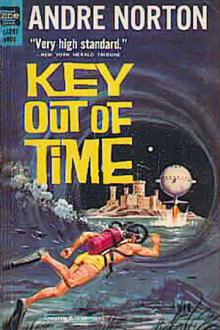Atlantida - Pierre Benoît (good books to read txt) 📗

- Author: Pierre Benoît
- Performer: -
Book online «Atlantida - Pierre Benoît (good books to read txt) 📗». Author Pierre Benoît
All the time he was talking so openly I felt delightedly my worst recent fears melting away. Nevertheless, I still experienced a mean desire to show him some marks of reserve, for having thus disposed of my company at a distance, without consulting me.
"I am very grateful to you, Captain, for your extremely flattering words. When do you wish to leave Wargla?"
He made a gesture of complete detachment.
"Whenever you like. Tomorrow, this evening. I have already delayed you. Your preparations must have already been made for some time."
My little maneuver had turned against myself. I had not been counting on leaving before the next week.
"Tomorrow, Captain, but your luggage?"
He smiled delightfully.
"I thought it best to bring as little as possible. A light pack, some papers. My brave camel had no difficulty in bringing it along. For the rest I depend on your advice, and the resources of Owargla."
I was well caught. I had nothing further to say. And moreover, such freedom of spirit and manner had already captivated me.
"It seems," said my comrades, when the time for aperitives had brought us all together again, "that this Captain of yours is a remarkably charming fellow."
"Remarkably."
"You surely can't have any trouble with him. It is only up to you to see that later on he doesn't get all the glory."
"We aren't working with the same end in view," I answered evasively.
I was thoughtful, only thoughtful I give you my word. From that moment I harbored no further grudge against Morhange. Yet my silence persuaded him that I was unforgiving. And everyone, do you hear me, everyone said later on, when suspicions became rife:
"He is surely guilty. We saw them go off together. We can affirm it."
I am guilty.... But for a low motive of jealousy.... How sickening....
After that, there was nothing to do but to flee, flee, as far as the places where there are no more men who think and reason.
Morhange, appeared, his arm resting on the Major's, who was beaming over this new acquaintanceship.
He presented him enthusiastically:
"Captain Morhange, gentlemen. An officer of the old school, and a man after our own hearts, I give you my word. He wants to leave tomorrow, but we must give him such a reception that he will forget that idea before two days are up. Come, Captain, you have at least eight days to give us."
"I am at the disposition of Lieutenant de Saint-Avit," replied Morhange, with a quiet smile.
The conversation became general. The sound of glasses and laughter rang out. I heard my comrades in ecstasies over the stories that the newcomer poured out with never-failing humor. And I, never, never have I felt so sad.
The time came to pass into the dining-room.
"At my right, Captain," cried the Major, more and more beaming. "And I hope you will keep on giving us these new lines on Paris. We are not up with the times here, you know."
"Yours to command, Major," said Morhange.
"Be seated, gentlemen."
The officers obeyed, with a joyous clatter of moving chairs. I had not taken my eyes off Morhange, who was still standing.
"Major, gentlemen, you will allow me," he said.
And before sitting down at that table, where every moment he was the life of the party, in a low voice, with his eyes closed, Captain Morhange recited the Benedicite.
IV TOWARDS LATITUDE 25
"You see," said Captain Morhange to me fifteen days later, "you are much better informed about the ancient routes through the Sahara than you have been willing to let me suppose, since you know of the existence of the two Tadekkas. But the one of which you have just spoken is the Tadekka of Ibn-Batoutah, located by this historian seventy days from Touat, and placed by Schirmer, very plausibly, in the unexplored territory of the Aouelimmiden. This is the Tadekka by which the Sonrhaï caravans passed every year, travelling by Egypt.
"My Tadekka is different, the capital of the veiled people, placed by Ibn-Khaldoun twenty days south of Wargla, which he calls Tadmekka. It is towards this Tadmekka that I am headed. I must establish Tadmekka in the ruins of Es-Souk. The commercial trade route, which in the ninth century bound the Tunisian Djerid to the bend the Niger makes at Bourroum, passed by Es-Souk. It is to study the possibility of reestablishing this ancient thoroughfare that the Ministries gave me this mission, which has given me the pleasure of your companionship."
"You are probably in for a disappointment," I said. "Everything indicates that the commerce there is very slight."
"Well, I shall see," he answered composedly.
This was while we were following the unicolored banks of a salt lake. The great saline stretch shone pale-blue, under the rising sun. The legs of our five mehara cast on it their moving shadows of a darker blue. For a moment the only inhabitant of these solitudes, a bird, a kind of indeterminate heron, rose and hung in the air, as if suspended from a thread, only to sink back to rest as soon as we had passed.
I led the way, selecting the route, Morhange followed. Enveloped in a bernous, his head covered with the straight chechia of the Spahis, a great chaplet of alternate red and white beads, ending in a cross, around his neck, he realized perfectly the ideal of Father Lavigerie's White Fathers.
After a two-days' halt at Temassinin we had just left the road followed by Flatters, and taken an oblique course to the south. I have the honor of having antedated Fourcau in demonstrating the importance of Temassinin as a geometrical point for the passage of caravans, and of selecting the place where Captain Pein has just now constructed a fort. The junction for the roads that lead to Touat from Fezzan and Tibesti, Temassinin is the future seat of a marvellous Intelligence Department. What I had collected there in two days about the disposition of our Senoussis enemies was of importance. I noticed that Morhange let me proceed with my inquiries with complete indifference.
These two days he had passed in conversation with the old Negro guardian of the turbet, which preserves, under its plaster dome, the remains of the venerated Sidi-Moussa. The confidences they exchanged, I am sorry to say that I have forgotten. But from the Negro's amazed admiration, I realized the ignorance in which I stood to the mysteries of the desert, and how familiar they were to my companion.
And if you want to get any idea of the extraordinary originality which Morhange introduced into such surroundings, you who, after all, have a certain familiarity with the tropics, listen to this. It was exactly two hundred kilometers from here, in the vicinity of the Great Dune, in that horrible stretch of six days without water. We had just enough for two days before reaching the next well, and you know these wells; as Flatters wrote to his wife, "you have to work for hours before you can clean them out and succeed in watering beasts and men." By chance we met a caravan there, which was going east towards Rhadamès, and had come too far north. The camels' humps, shrunken and shaking, bespoke the sufferings of the troop. Behind came a little gray ass, a pitiful burrow, interfering at every step, and lightened of its pack because the merchants knew that it was going to die. Instinctively, with its last strength, it followed, knowing that when it could stagger no longer, the end would come and the flutter of the bald vultures' wings. I love animals, which I have solid reasons for preferring to men. But never should I have thought of doing what Morhange did then. I tell you that our water skins were almost dry, and that our own camels, without which one is lost in the empty desert, had not been watered for many hours. Morhange made his kneel, uncocked a skin, and made the little ass drink. I certainly felt gratification at seeing the poor bare flanks of the miserable beast pant with satisfaction. But the responsibility was mine. Also I had seen Bou-Djema's aghast expression, and the disapproval of the thirsty members of the caravan. I remarked on it. How it was received! "What have I given," replied Morhange, "was my own. We will reach El-Biodh to-morrow evening, about six o'clock. Between here and there I know that I shall not be thirsty." And that in a tone, in which for the first time he allowed the authority of a Captain to speak. "That is easy to say," I thought, ill-humoredly. "He knows that when he wants them, my water-skin, and Bou-Djema's, are at his service." But I did not yet know Morhange very well, and it is true that until the evening of the next day when we reached El-Biodh, refusing our offers with smiling determination, he drank nothing.
Shades of St. Francis of Assisi! Umbrian hills, so pure under the rising sun! It was in the light of a like sunrise, by the border of a pale stream leaping in full cascades from a crescent-shaped niche of the gray rocks of Egere, that Morhange stopped. The unlooked for waters rolled upon the sand, and we saw, in the light which mirrored them, little black fish. Fish in the middle of the Sahara! All three of us were mute before this paradox of Nature. One of them had strayed into a little channel of sand. He had to stay there, struggling in vain, his little white belly exposed to the air.... Morhange picked him up, looked at him for a moment, and put him back into the little stream. Shades of St. Francis. Umbrian hills.... But I have sworn not to break the thread of the story by these untimely digressions.
"You see," Captain Morhange said to me a week later, "that I was right in advising you to go farther south before making for Shikh-Salah. Something told me that this highland of Egere was not interesting from your point of view. While here you have only to stoop to pick up pebbles which will allow you to establish the volcanic origin of this region much more certainly than Bou-Derba, des Cloizeaux, and Doctor Marrés have done."
This was while we were following the western pass of the Tidifest Mountains, about the 25th degree of northern latitude.
"I should indeed be ungrateful not to thank you," I said.
I shall always remember that instant. We had left our camels and were collecting fragments of the most characteristic rocks. Morhange employed himself with a discernment which spoke worlds for his knowledge of geology, a science he had often professed complete ignorance of.
Then I asked him the following question:
"May I prove my gratitude by making you a confession?"
He raised his head and looked at me.
"Well then, I don't see the practical value of this trip you have undertaken."
He smiled.
"Why not? To explore the old caravan route, to demonstrate that a connection has existed from the most ancient times between the Mediterranean world, and the country of the Blacks, that seems nothing in your eyes?





Comments (0)